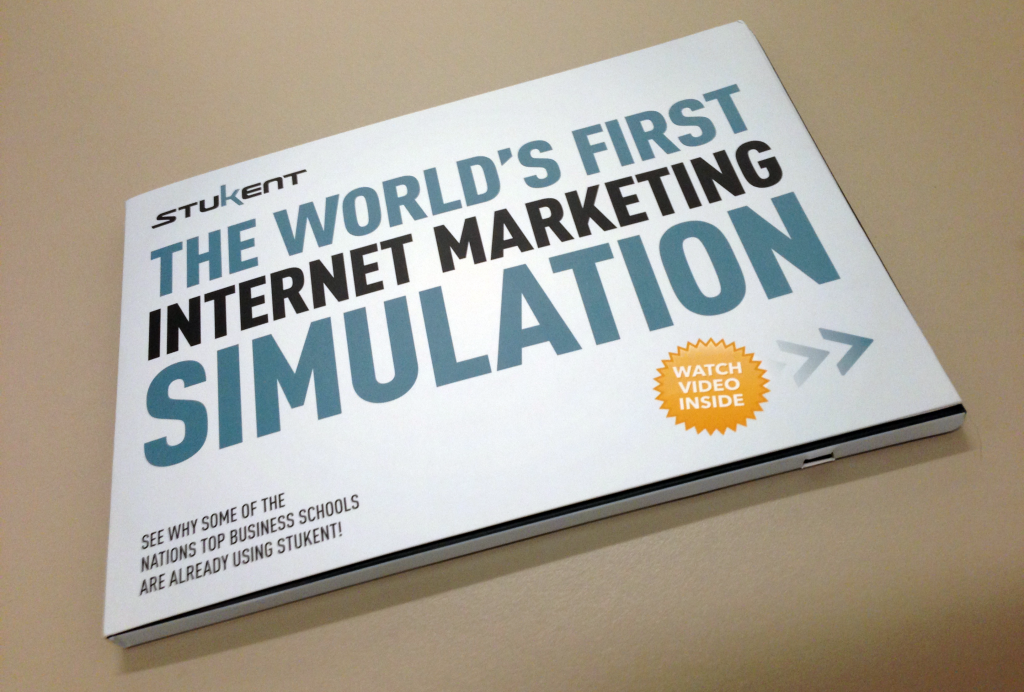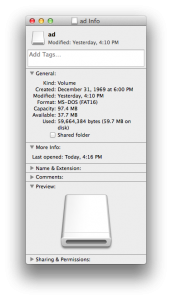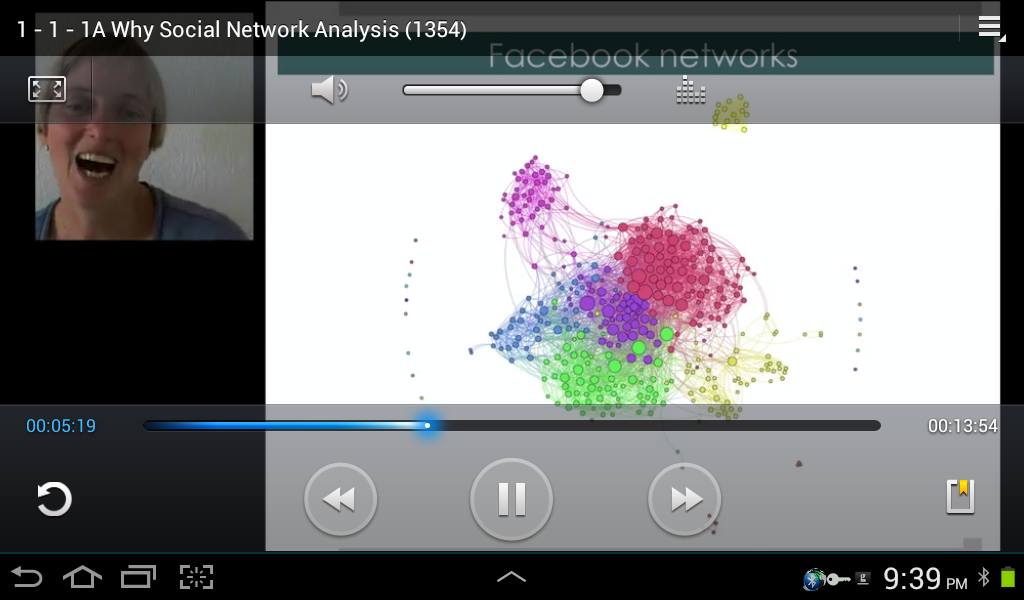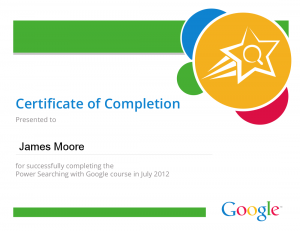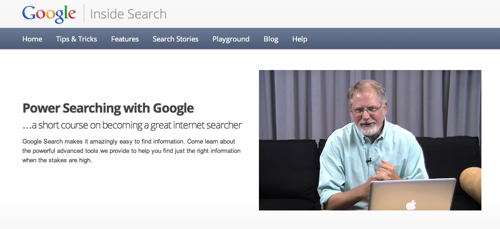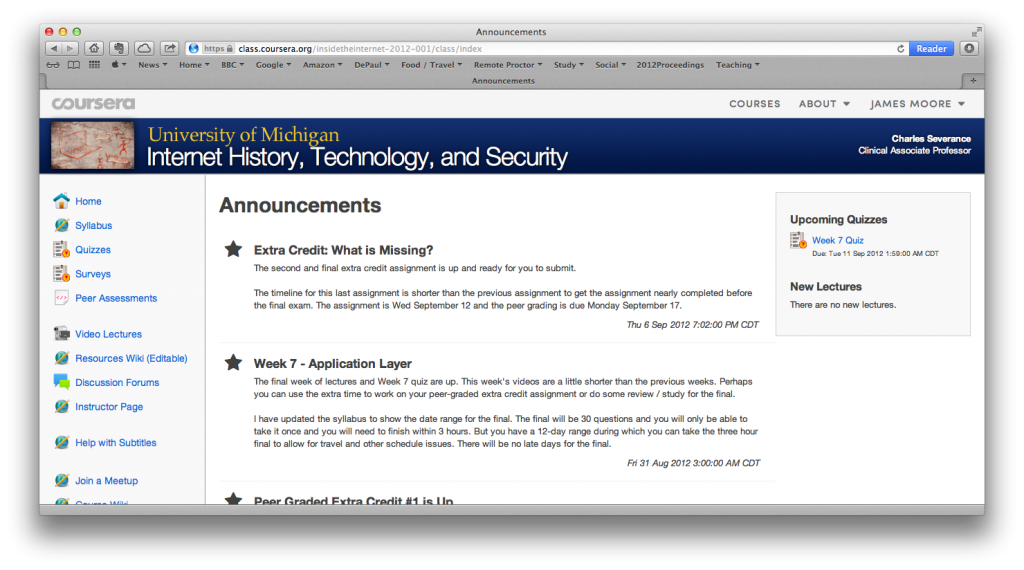
I am in the final weeks of a Cousera course (Internet History, Technology, and Security), and the instructor has kindly shared the demographic data provided (via a survey) for the students in the MOOC. As Charles Severance says:
Of course the caveat is that it is not scientific, it is partial, incomplete, your results may vary, void where prohibited, etc etc etc. It is anecdotal at best but certainly interesting. This is not all the data but the other items like country need some coding as they were fill-in-the-blank and folks filled it in a lot of ways.
Is this your first online class?
Is this your first large, free, online course (i.e. MOOC)?
Which best describes your motivation for taking this class? Check all that apply:
- 2677 General interest in the topic
- 2215 Extending current knowledge of the topic
- 442 Supplement other college/university classes courses
- 203 Decide if I want to take college/university classes on the topic
- 1539 Professional development
- 1437 Interest in how these courses are taught
Are you currently a student in a school or college?
What is your highest level of education?
- 81 Some high school
- 298 High school
- 363 Some college
- 207 Associate’s degree (2 years of college)
- 1234 Bachelor’s degree (BA/BS, 4 years of college)
- 1016 Master’s degree
- 186 Doctoral degree
- 174 Professional degree (MD, JD)
Are you currently a teacher?
If you are a teacher, are you thinking about reusing some of the material in this course for your own course?
What is your gender?
- 2387 Male
- 1121 Female
- 31 Decline to state
What is your age?
- 75 I prefer not to answer
- 757 18-24
- 1189 25-34
- 621 35-44
- 491 45-54
- 420 55+

